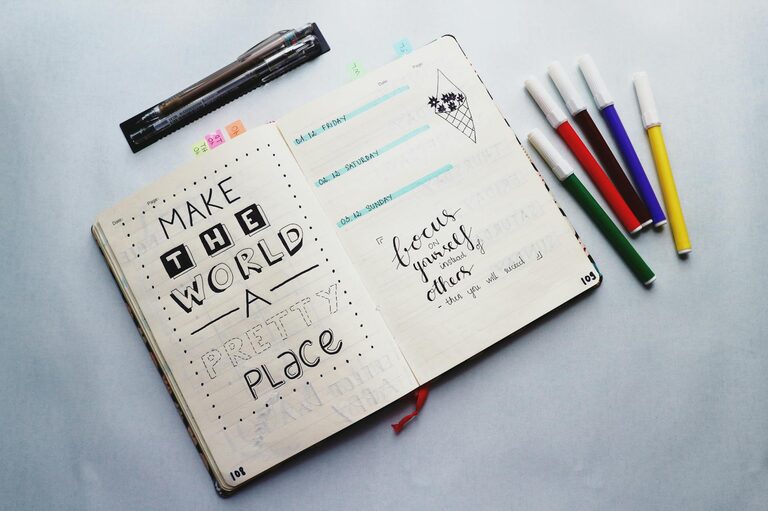Are you looking for a simple yet flexible way to organize your tasks, goals, and ideas? Bullet journaling might be just what you need. This versatile system combines planning, note-taking, and creativity, allowing you to tailor your journal to fit your lifestyle perfectly. In this beginner guide, you’ll learn what bullet journaling is, how to get started, and tips to make it work for you.
What is Bullet Journaling?
Bullet journaling is a method of keeping a journal or planner that uses short, concise entries called “bullets.” Developed by Ryder Carroll, it’s designed to be fast, efficient, and customizable. Unlike traditional planners, bullet journals let you create your own sections, track habits, jot down thoughts, or sketch doodles—all in one place.
Key features of a bullet journal include:
– Index: A table of contents for your journal.
– Rapid Logging: Quick bullets to note tasks, events, and notes.
– Modules: Collections like habit trackers, goal lists, and calendars.
– Migration: Reviewing and moving unfinished tasks forward.
Why Try Bullet Journaling?
Bullet journaling offers several benefits, including:
– Flexibility: Customize your layouts and categories as you go.
– Improved organization: Keep all aspects of your life in one journal.
– Enhanced mindfulness: Reflect on your goals and progress consistently.
– Creative expression: Use colors, drawings, and stickers if you like.
What You Need to Get Started
Starting a bullet journal requires minimal supplies:
– Notebook: A dotted or grid notebook is popular but plain or lined notebooks work too.
– Pen or Pencil: Choose what feels comfortable; colored pens are optional.
– Ruler: Helpful for creating straight lines and neat layouts.
Optional supplies include:
– Stickers or washi tape for decoration.
– Highlighters or markers for color coding.
Setting Up Your Bullet Journal
Step 1: Create an Index
Start your journal with a space for your index. This will help you quickly locate different pages. Number your pages as you go or beforehand if you prefer.
Step 2: Set Up a Future Log
This section is for future events and goals beyond the current month. You can create a simple calendar layout or list upcoming appointments and deadlines.
Step 3: Make a Monthly Log
Here, record tasks, events, and goals for the current month. It typically has two parts:
– A calendar overview for quick reference.
– A task list for things to accomplish.
Step 4: Design Your Daily Log
Use daily logs to jot down your tasks, appointments, and notes for each day. Bullet journaling uses symbols for quick identification:
– Tasks: • (dot)
– Events: ○ (circle)
– Notes: – (dash)
Add an “X” to a task to mark it complete or “>” to migrate it to another day.
Useful Collections to Add
Collections are themed lists or trackers to organize specific areas of your life. Some popular ideas include:
– Habit tracker to monitor daily activities.
– Expense tracker to manage finances.
– Meal planner for weekly meals.
– Book or movie lists.
– Goal-setting pages.
Tips for Bullet Journaling Success
– Keep it simple: Don’t feel pressure to make it perfect or decorative.
– Review regularly: Set aside time each day or week to review and update.
– Personalize your system: Experiment with layouts until you find what works best.
– Use it consistently: The more you use your bullet journal, the more helpful it becomes.
Common Mistakes to Avoid
– Overcomplicating your pages with too many designs.
– Skipping habit or task reviews.
– Relying too heavily on a perfect setup.
Remember, your bullet journal is a tool to support you, not a chore.
Final Thoughts
Bullet journaling is an adaptable and rewarding way to organize your tasks, reflect on your journey, and unleash your creativity. Whether you want to keep track of everyday to-dos or bigger projects, this method can be customized to suit your needs. Start small, be consistent, and watch how bullet journaling transforms the way you manage your life.
Ready to get started? Grab a notebook and pen, and create your first pages today! Happy journaling!

